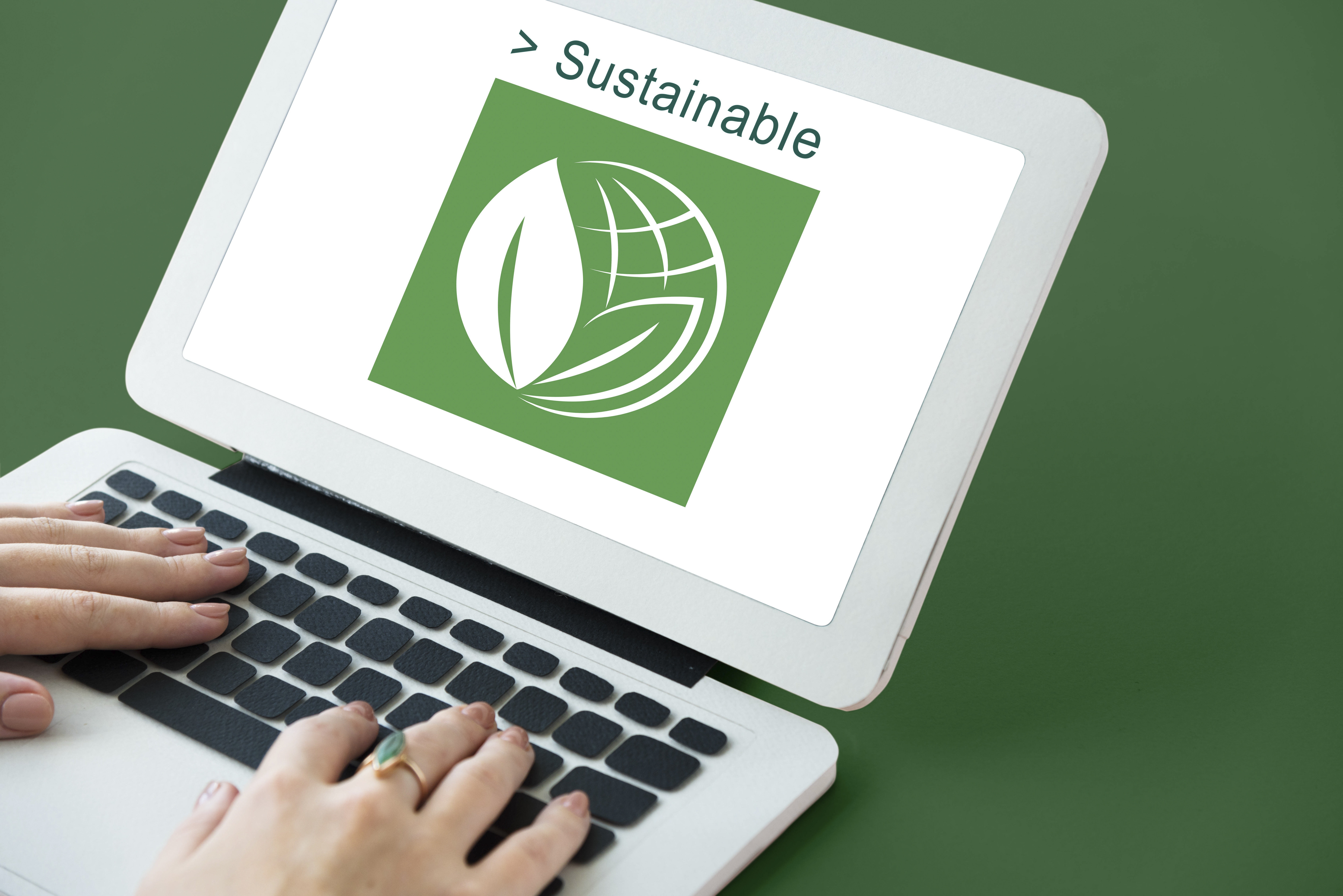5 Tips for Eco-Friendly Small Business Accounting

Table of Contents
Key Takeaways
What is Eco-Friendly Small Business Accounting?
Top 5 Tips for Eco-Friendly Small Business Accounting
Benefits of Adopting Eco-Friendly Accounting Practices for Small Businesses
How to Choose the Right Eco-Friendly Accounting Services for Your Small Business
Frequently Asked Questions
Partner with Fincadia Tax Services: Your Reliable Accounting Solution in NYC
Key Takeaways✔ Eco-friendly small business accounting involves adopting sustainable practices to manage financial records, minimizing environmental impact while enhancing efficiency. ✔ Transitioning to digital documents saves on paper, printing, and storage costs while improving efficiency. ✔ Using cloud accounting software reduces energy consumption, enhances data access, and supports remote work. ✔ Implementing electronic invoicing reduces paper usage, mailing costs, and carbon emissions, while speeding up transactions. ✔ Investing in energy-efficient equipment and promoting sustainable office supplies and green policies can significantly reduce environmental impact. ✔ Encouraging eco-friendly habits among employees through education, incentives, and fostering a green workplace culture contributes to overall sustainability. |
Sustainability is a necessity in today's business landscape, especially for small businesses adopting eco-friendly practices. Eco-friendly small business accounting reduces the environmental footprint, enhances efficiency, and improves profitability. By shifting to greener practices, businesses save costs, boost brand reputation, and comply with environmental regulations.

What is Eco-Friendly Small Business Accounting?
Eco-friendly small business accounting refers to the adoption of sustainable practices in managing a business's financial records and operations. This approach aims to minimize the environmental impact of accounting activities while enhancing operational efficiency. Traditional accounting methods often involve extensive use of paper, high energy consumption, and reliance on physical resources that contribute to environmental degradation.
Top 5 Tips for Eco-Friendly Small Business Accounting
1. Adopt Cloud-Based Accounting Solutions
Cloud-based small business accounting solutions not only enhance operational efficiency but also contribute significantly to eco-friendly practices. By using cloud-based accounting solutions and going digital, businesses can lower greenhouse gas emissions by 20% by 2050.
Environmental Benefits of Cloud-Based Solutions
Reduction in Energy Consumption: Cloud computing reduces the need for physical servers and data centers, which consume large amounts of energy. Cloud providers like Amazon Web Services (AWS) and Google Cloud Platform are highly energy-efficient and often use renewable energy sources.
Lower Carbon Footprint: Cloud solutions optimize resource utilization, leading to a smaller carbon footprint. These providers invest in energy-efficient technologies and green energy projects to minimize their environmental impact.
Operational Advantages
Real-Time Access to Financial Data: Cloud accounting allows for real-time updates and access to financial data from any device with internet connectivity. This ensures that financial records are always up-to-date and accessible.
Collaboration and Remote Work: Cloud-based systems enable multiple users to work on the same data simultaneously, promoting collaboration. They also support remote work, reducing the need for commuting and office space.
Choosing the Right Cloud-Based Solution
Key Features to Look For: When selecting a cloud accounting platform, consider features such as security, scalability, integration capabilities, and user-friendliness.
Popular Cloud Accounting Platforms: QuickBooks Online, Xero, and FreshBooks are among the top cloud accounting solutions, each offering unique features tailored to different business needs.
2. Embrace Digital Invoicing and Payments
US businesses use around 21 million tons of paper a year, wherein 750,000 copies are made per minute. Switching to digital invoicing and payment systems can greatly lower the use of paper products that enhances both the environmental sustainability and operational efficiency of your business.
Environmental Impact
Reduction in Paper Usage and Mailing Costs: Digital invoices eliminate the need for paper, envelopes, and postage, significantly reducing waste and costs.
Decrease in Carbon Emissions from Transportation: By sending invoices and receiving payments electronically, businesses reduce the carbon footprint associated with mail delivery.
Efficiency and Cost Savings
Faster Processing Times and Improved Cash Flow: Digital invoices are delivered instantly, leading to quicker payments and better cash flow management.
Reduced Errors and Enhanced Record-Keeping: Automated systems minimize human errors and streamline the invoicing process, making it easier to track and manage payments.
Implementation Tips
Choosing a Digital Invoicing Platform: Look for platforms like Invoice2go, Zoho Invoice, and FreshBooks, which offer user-friendly interfaces and robust features.
Educating Clients and Vendors about Digital Payments: Communicate the benefits of digital payments to your clients and vendors and offer support to help them transition.
Ensuring Security and Compliance: Use secure payment gateways and comply with relevant regulations to protect sensitive financial information.
3. Implement Energy-Efficient Office Practices

Adopting energy-efficient practices in your office operations can significantly reduce your business's environmental impact.
Energy-Efficient Equipment
Choosing ENERGY STAR Certified Devices: Opt for computers, printers, and other office equipment that have ENERGY STAR certification. These devices use less energy and are more environmentally friendly.
Benefits of LED Lighting and Smart Thermostats: Replace traditional light bulbs with LED lights and install smart thermostats to reduce energy consumption and costs.
Sustainable Office Supplies
Using Recycled Paper and Eco-Friendly Office Products: Purchase recycled paper and other eco-friendly office supplies. Many suppliers offer products made from sustainable materials.
Suppliers Offering Sustainable Options: Partner with suppliers who prioritize sustainability and offer a range of green products.
Green Office Policies
Encouraging Employees to Reduce Energy Consumption: Promote simple actions like turning off lights and computers when not in use.
Implementing Recycling Programs: Set up recycling bins for paper, plastic, and electronic waste. Educate employees about the importance of recycling.
Promoting Remote Work and Flexible Schedules: Reduce the need for commuting by offering remote work options and flexible schedules.
4. Choose Sustainable Vendors and Partners
Collaborating with vendors and partners who prioritize sustainability can amplify your eco-friendly efforts.
Evaluating Vendors
Criteria for Selecting Eco-Friendly Vendors: Look for vendors with clear sustainability policies, certifications (such as Fair Trade or LEED), and a commitment to reducing their environmental impact.
Importance of Transparency and Certifications: Ensure that your vendors are transparent about their sustainability practices and hold relevant environmental certifications.
Benefits of Sustainable Partnerships
Enhanced Brand Reputation: Associating with eco-friendly vendors enhances your business's reputation as a socially responsible entity.
Long-Term Cost Savings: Sustainable practices often lead to cost savings in the long run, through improved efficiency and reduced waste.
Building Relationships with Sustainable Partners
Communicating Your Business’s Sustainability Goals: Clearly communicate your sustainability goals to your vendors and encourage them to adopt similar practices.
Collaborative Efforts for Continuous Improvement: Work together with your vendors to identify areas for improvement and develop joint sustainability initiatives.
5. Promote Eco-Friendly Employee Practices
Encouraging your employees to adopt eco-friendly practices can create a culture of sustainability within your business.
Creating Awareness and Education Programs
Workshops and Training on Sustainability: Organize workshops and training sessions to educate employees about the importance of sustainability and how they can contribute.
Sharing Tips and Best Practices: Regularly share tips and best practices for eco-friendly living and working, through newsletters, intranets, or bulletin boards.
Incentivizing Eco-Friendly Behavior
Rewards and Recognition Programs: Recognize and reward employees who actively contribute to your sustainability goals. This could include incentives for using public transport, reducing energy consumption, or participating in green initiatives.
Encouraging Carpooling, Biking, and Public Transport: Provide incentives for employees to use eco-friendly modes of transportation, such as subsidies for public transport passes or bike racks at the office.
Fostering a Green Workplace Culture
Green Team Initiatives: Establish a green team or committee to spearhead sustainability initiatives and engage employees in eco-friendly activities.
Promoting a Paperless and Energy-Efficient Workplace: Continuously promote paperless practices and energy-saving measures within the office.

Benefits of Adopting Eco-Friendly Accounting Practices for Small Businesses
Adopting eco-friendly small business accounting practices offers a myriad of advantages for small businesses. These benefits extend beyond environmental conservation, impacting cost efficiency, operational effectiveness, and brand reputation.
1. Cost Savings
Eco-friendly accounting practices can lead to substantial cost savings for small businesses. By going paperless, businesses save on the costs associated with purchasing paper, ink, and other printing supplies. The expenses related to storage and mailing are also significantly reduced. Furthermore, implementing energy-efficient equipment and practices can cut down on energy consumption, leading to lower utility bills. Digital tools and cloud-based solutions streamline operations, reducing the need for physical resources and the costs associated with them. These savings can then be reinvested into other areas of the business, fostering growth and development.
2. Enhanced Efficiency and Productivity
Implementing eco-friendly accounting practices enhances both efficiency and productivity within a business. Digital records are easier to organize, search, and retrieve, saving time and improving accuracy in financial management. Cloud accounting solutions provide real-time access to financial data, enabling better decision-making and more responsive business operations. Additionally, digital invoicing and payments accelerate transaction times, improving cash flow and reducing administrative burdens. These efficiencies allow businesses to focus more on strategic growth and less on time-consuming administrative tasks.
3. Improved Brand Reputation
Businesses that adopt eco-friendly practices demonstrate their commitment to sustainability, which can enhance their reputation among environmentally-conscious consumers and partners. A growing number of consumers prefer to support businesses that prioritize sustainability. Adopting green practices can attract and retain these customers, leading to increased loyalty and sales. Moreover, demonstrating environmental responsibility can boost a company’s image and differentiate it from competitors. This enhanced brand reputation can open up new business opportunities and partnerships that further drive business success.
4. Compliance and Risk Management
Eco-friendly accounting practices help businesses comply with increasing environmental regulations set by governments and regulatory bodies. This compliance helps businesses avoid fines and legal issues associated with non-compliance. Additionally, sustainable practices reduce the risk of supply chain disruptions related to environmental factors, ensuring smoother operations. By proactively adopting eco-friendly measures, businesses can stay ahead of regulatory changes and reduce the risks associated with environmental impacts, leading to more stable and secure operations.
5. Employee Engagement and Satisfaction
Encouraging eco-friendly practices within a business can significantly boost employee morale. Employees often feel proud to work for a company that values sustainability, which can lead to higher job satisfaction and loyalty. Promoting eco-friendly habits at work, such as reducing energy use, recycling, and using sustainable transportation options, can inspire employees to adopt similar practices in their personal lives, contributing to broader environmental benefits. This engagement fosters a positive workplace culture that values and supports sustainability, leading to a more motivated and committed workforce.
6. Long-Term Sustainability
Adopting eco-friendly practices is essential for the long-term sustainability of a business. As environmental concerns continue to grow, businesses that adopt sustainable practices are better positioned for the future. These practices ensure that the business remains relevant and competitive in an evolving market. Eco-friendly practices contribute to long-term sustainability by conserving resources and reducing waste, ensuring the business can thrive without depleting natural resources. By focusing on sustainability, businesses can build a resilient foundation that supports ongoing growth and success in the face of environmental challenges.
How to Choose the Right Eco-Friendly Accounting Services for Your Small Business
Selecting the right eco-friendly accounting services for your small business is crucial to ensure that your financial management aligns with your sustainability goals. When choosing an eco-friendly accounting service for your small business accounting needs, consider these key factors:
Evaluate Their Commitment to Sustainability
The first step in selecting an eco-friendly accounting service is to assess their commitment to sustainability. Look for firms that have clear environmental policies and certifications such as ISO 14001 or other green certifications. These indicators show that the firm is serious about minimizing its environmental impact. Ask potential service providers about their own eco-friendly practices, such as their use of paperless systems, digital communication tools, and energy-efficient technologies, which are essential for small business accounting.
Ensure Compatibility with Cloud-Based Solutions
Cloud-based accounting solutions are fundamental to eco-friendly practices in small business accounting. Ensure that the accounting service you choose is well-versed in cloud-based platforms like QuickBooks Online, Xero, or FreshBooks. These platforms not only support paperless operations but also offer real-time access to your financial data, enhancing efficiency and flexibility. A service provider proficient in these tools can help you transition smoothly and maximize the benefits of cloud accounting for your small business accounting needs.
Look for Digital Invoicing and Payment Integration
Effective eco-friendly accounting services should offer robust digital invoicing and payment solutions for small business accounting. These systems reduce the need for paper and physical mail, thus cutting down on waste and carbon emissions. Verify that the service provider can seamlessly integrate digital invoicing and payment processing into your existing systems. This integration ensures faster transaction times, improved cash flow, and reduced administrative burden, all while supporting your sustainability efforts in small business accounting.
Assess Their Use of Energy-Efficient Technologies
An eco-friendly accounting service should utilize energy-efficient technologies in their operations, particularly for small business accounting. Inquire about the types of equipment and software they use, and whether they implement practices such as using ENERGY STAR certified devices and optimizing energy consumption in their offices. This not only demonstrates their commitment to sustainability but also reflects their ability to recommend similar energy-efficient solutions for your small business accounting needs.
Check Their Experience with Sustainable Vendors
Working with an accounting service that has experience dealing with sustainable vendors can be beneficial for your small business accounting. Such experience indicates that they understand the importance of maintaining a green supply chain and can help you identify and collaborate with eco-friendly suppliers and partners. Ask for case studies or references that highlight their work with businesses that prioritize sustainability in their small business accounting practices.
Consider Their Approach to Employee Engagement
An effective eco-friendly accounting service will also emphasize the importance of engaging employees in sustainable practices, which is crucial for small business accounting. Inquire about their internal programs and how they encourage their own employees to adopt green habits. This can give you insights into their organizational culture and their ability to foster a similar culture within your business, enhancing your small business accounting.
Evaluate Their Customization and Scalability Options
Every small business has unique needs, and your accounting service should be able to customize their offerings to match those needs in small business accounting. Ensure that the service provider can tailor their eco-friendly solutions to your specific requirements. Additionally, consider their scalability options—your business will grow, and the accounting service should be able to support this growth with scalable solutions that continue to align with your sustainability goals for small business accounting.

Verify Security and Compliance
Security is paramount when dealing with digital accounting solutions for small business accounting. Ensure that the eco-friendly accounting service adheres to the highest security standards to protect your financial data. Additionally, verify that they comply with relevant regulations and standards, such as GDPR or other data protection laws. Secure and compliant practices ensure that your transition to eco-friendly accounting does not compromise your small business’s data integrity.
Frequently Asked Questions
What are the initial steps to transition to eco-friendly accounting for a small business?
Transitioning to eco-friendly accounting begins with evaluating current practices and identifying areas for improvement. Start by digitizing paper records, adopting cloud-based accounting software, and implementing electronic invoicing and payment systems. Educate your staff on the benefits and processes of going green to ensure a smooth transition.
Are there tax benefits available for businesses adopting eco-friendly practices?
Yes, there are various tax benefits for businesses adopting eco-friendly practices. These can include deductions for energy-efficient commercial buildings, tax credits for purchasing electric vehicles, and incentives for installing renewable energy systems like solar panels. Consulting with a tax professional can help identify applicable benefits.
How can a business measure the impact of its eco-friendly accounting practices?
Businesses can measure the impact of their eco-friendly accounting practices by tracking key metrics such as paper and energy usage, waste reduction, and cost savings. Regular sustainability reports can help monitor progress and demonstrate commitment to stakeholders. Using tools like energy meters and waste audits can provide concrete data on improvements.
Partner with Fincadia Tax Services: Your Reliable Accounting Solution in NYC
Choosing the right accounting service is essential for any business looking to enhance operational efficiency and financial management. Fincadia Tax Services is your go-to partner for reliable small business accounting solutions. With Fincadia Tax Services, you get top-notch financial management tailored to your business needs. Let us guide you through the complexities of accounting, ensuring your business thrives in New York City's dynamic market.
Choose Fincadia Tax Services today and experience the difference that expert accounting can make for your business in New York City.
Want tax & accounting tips and insights?
Sign up for our newsletter.